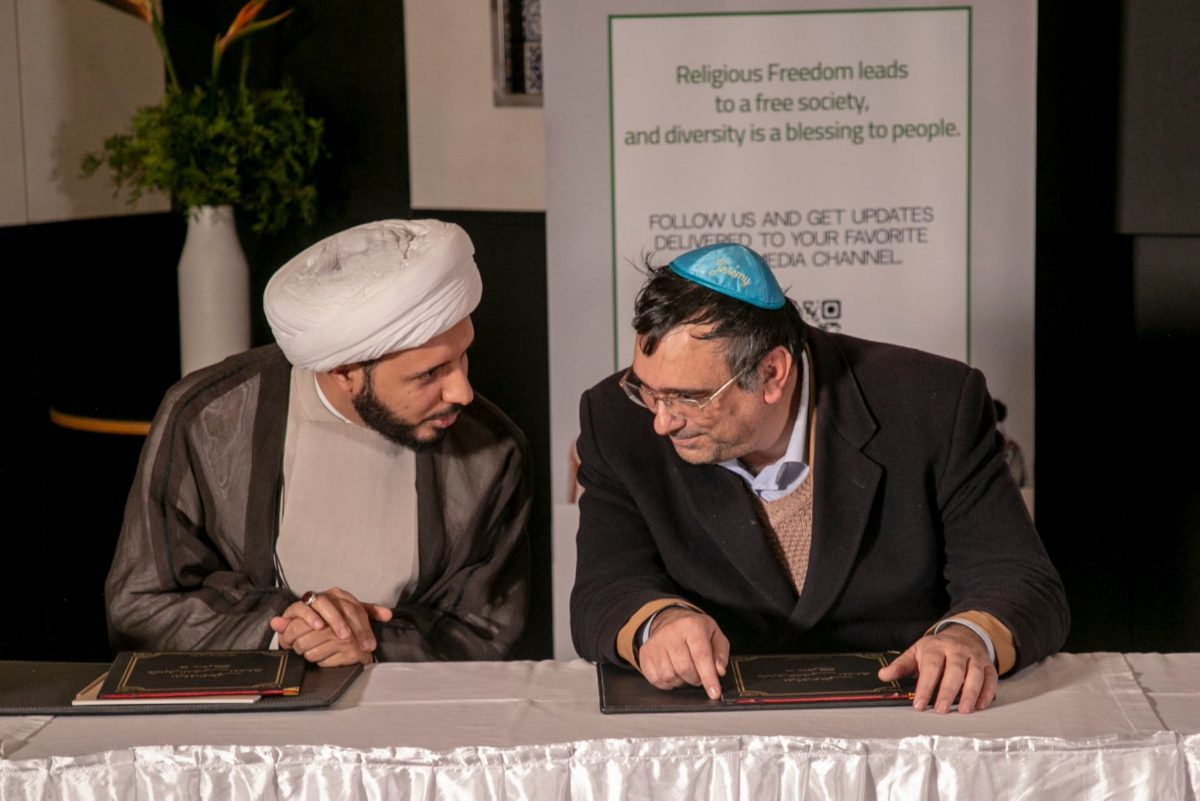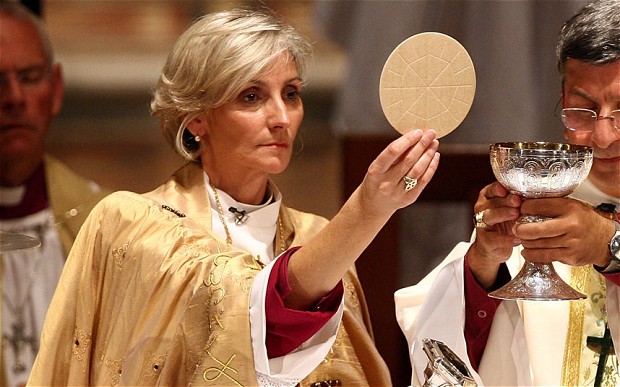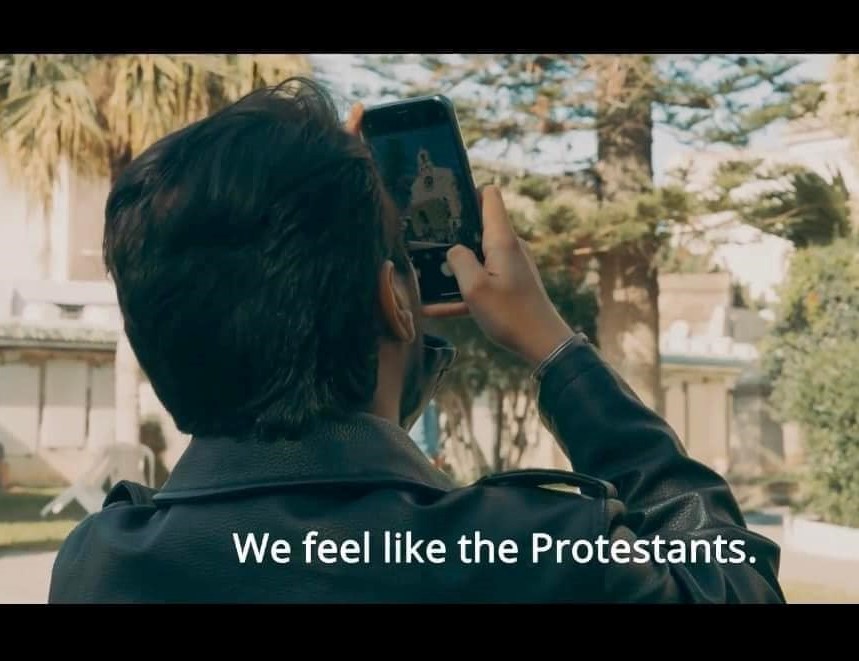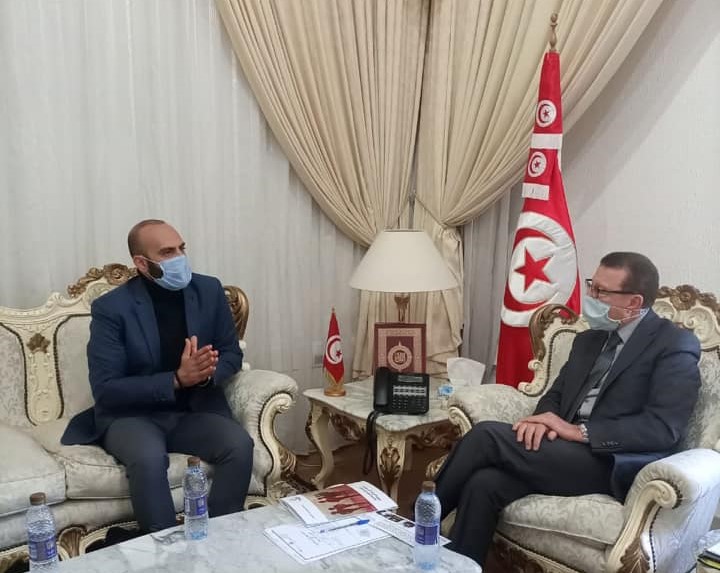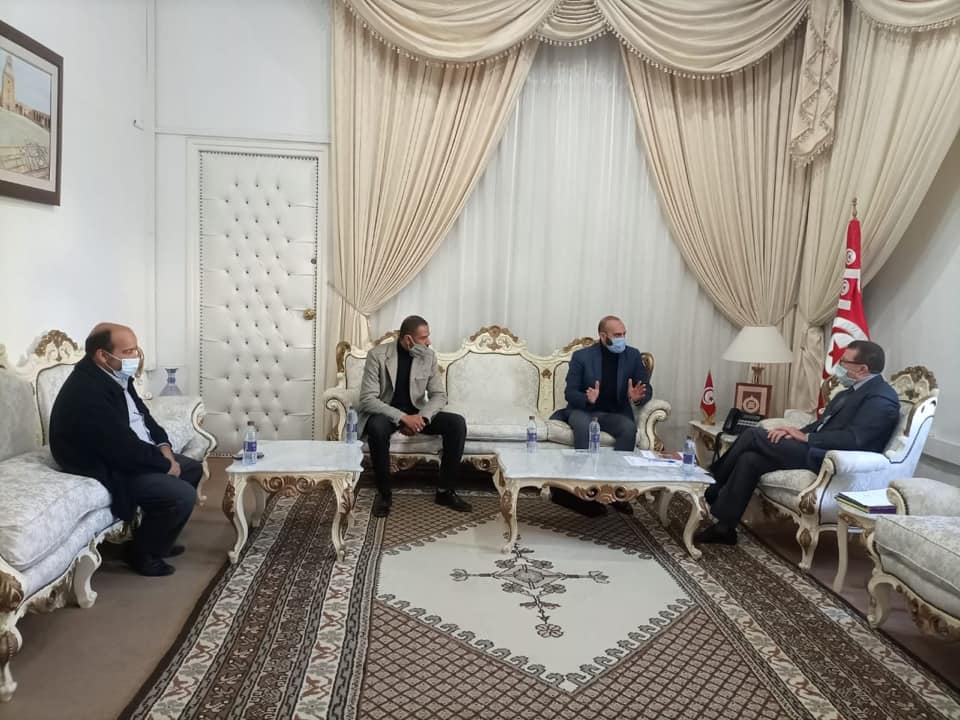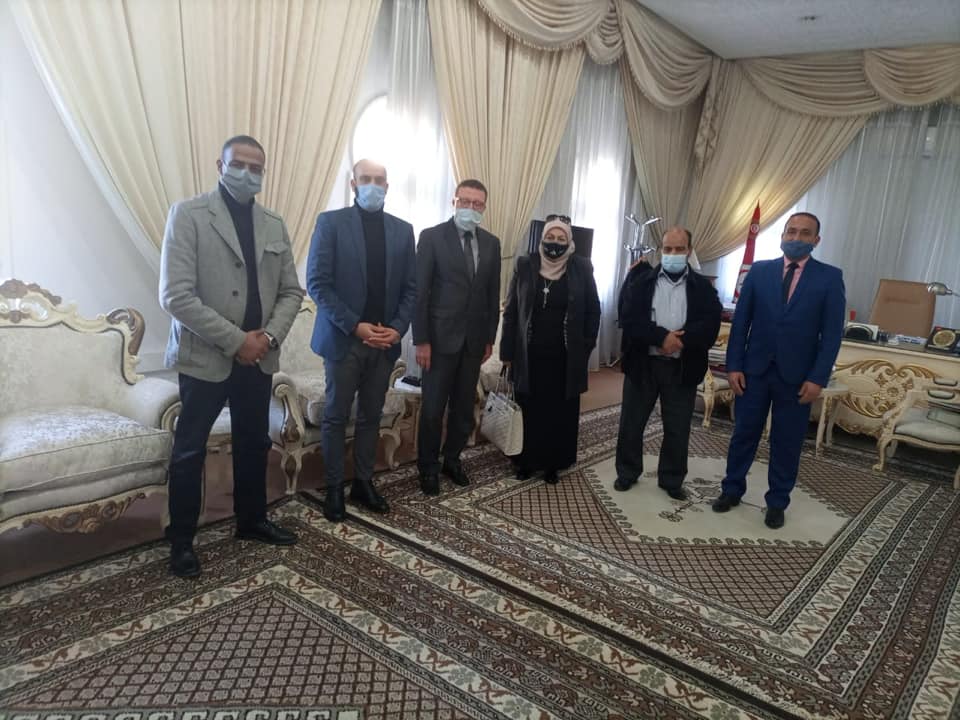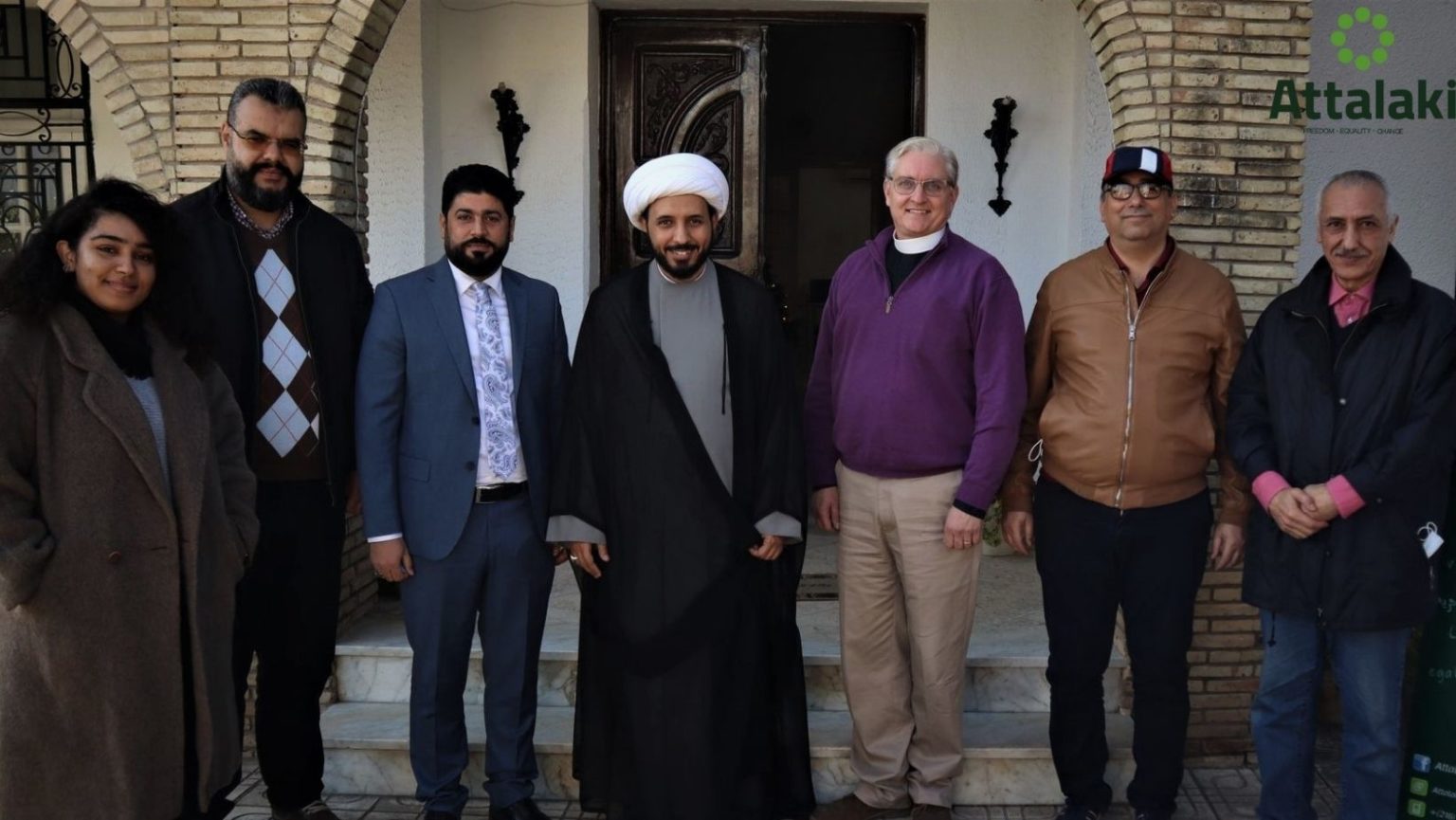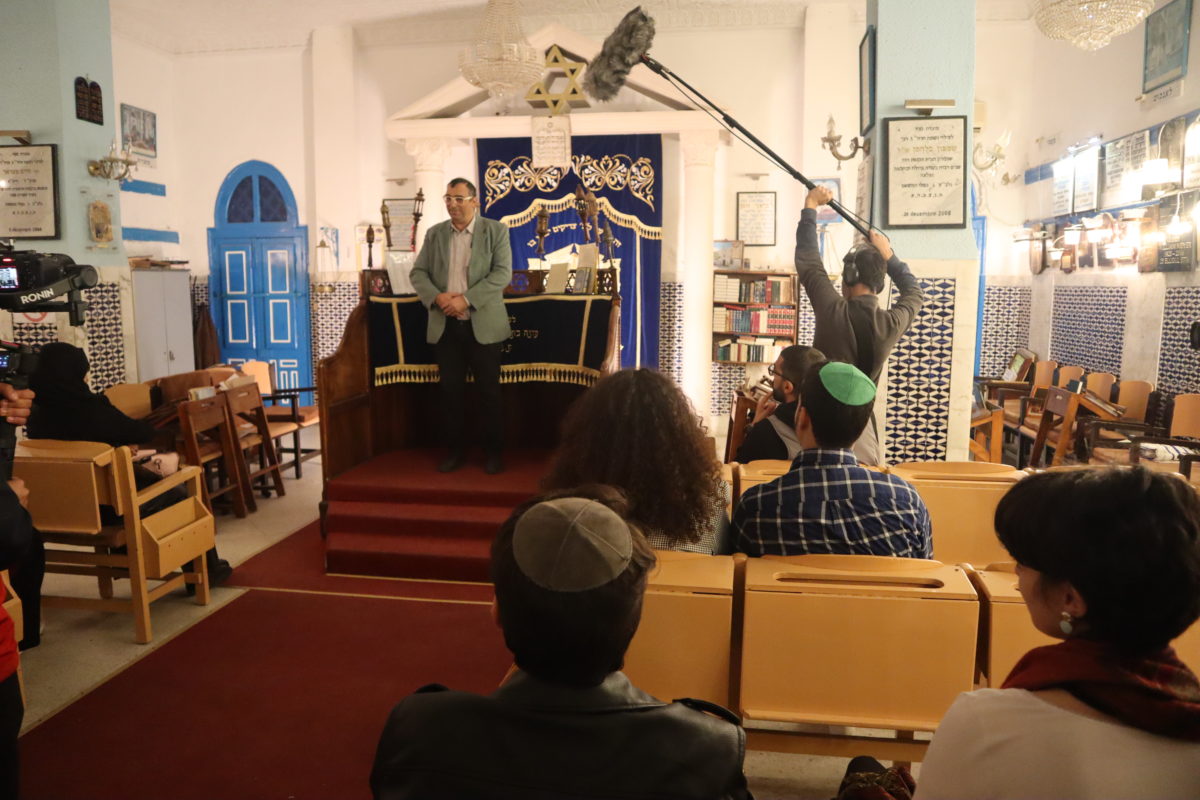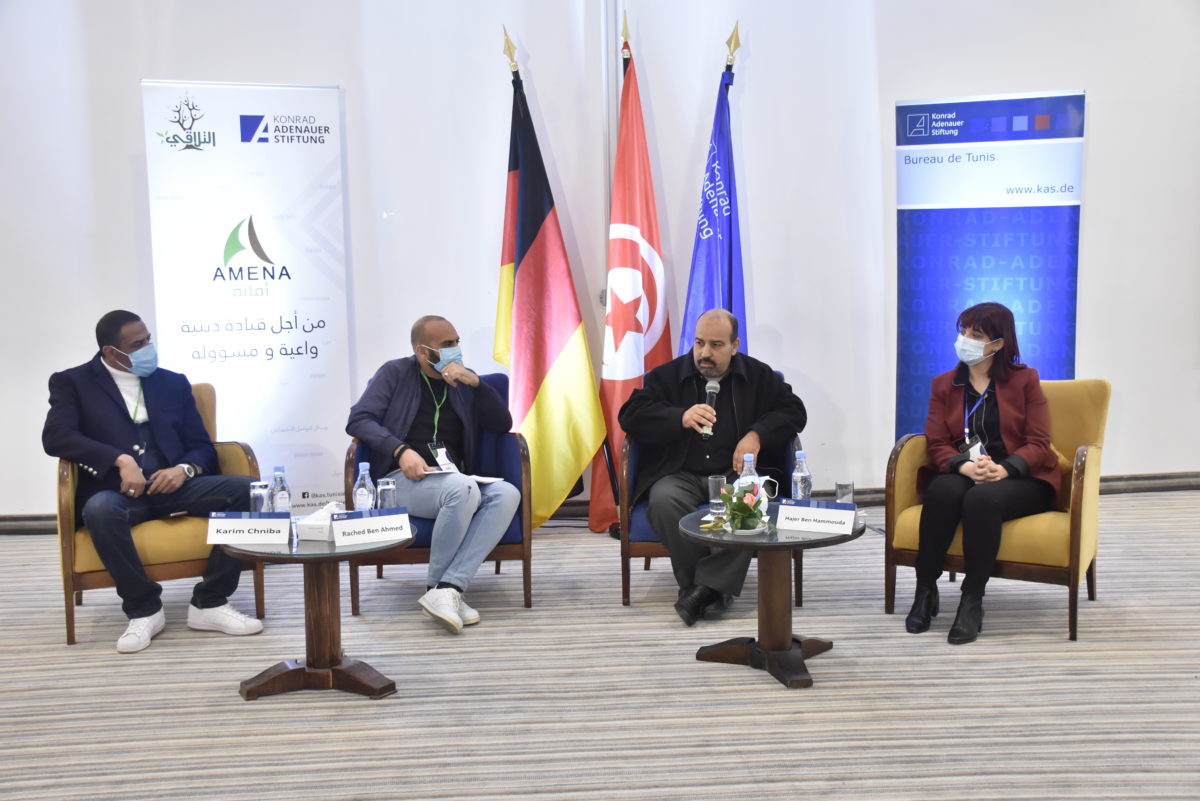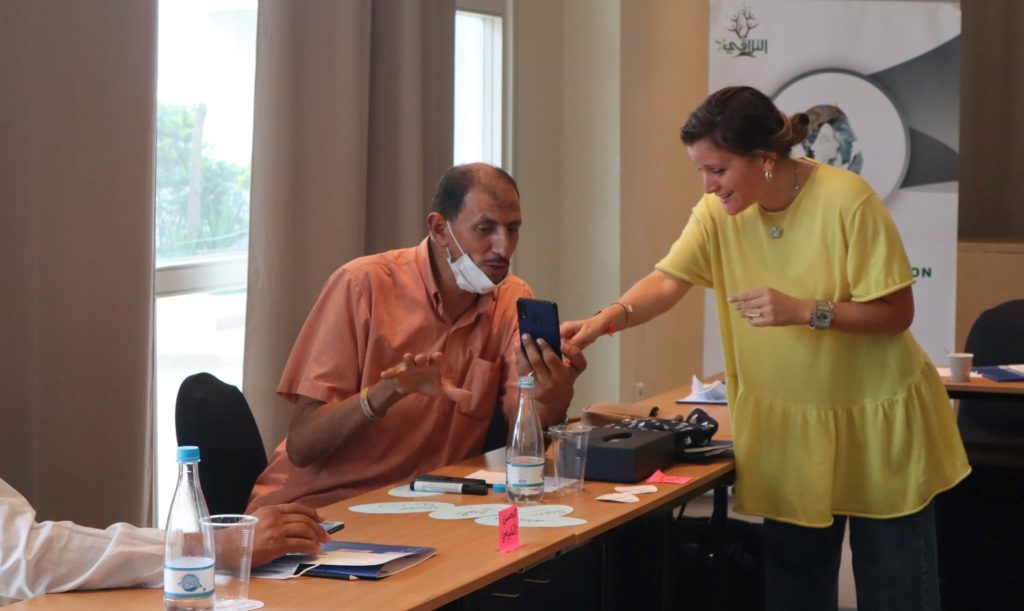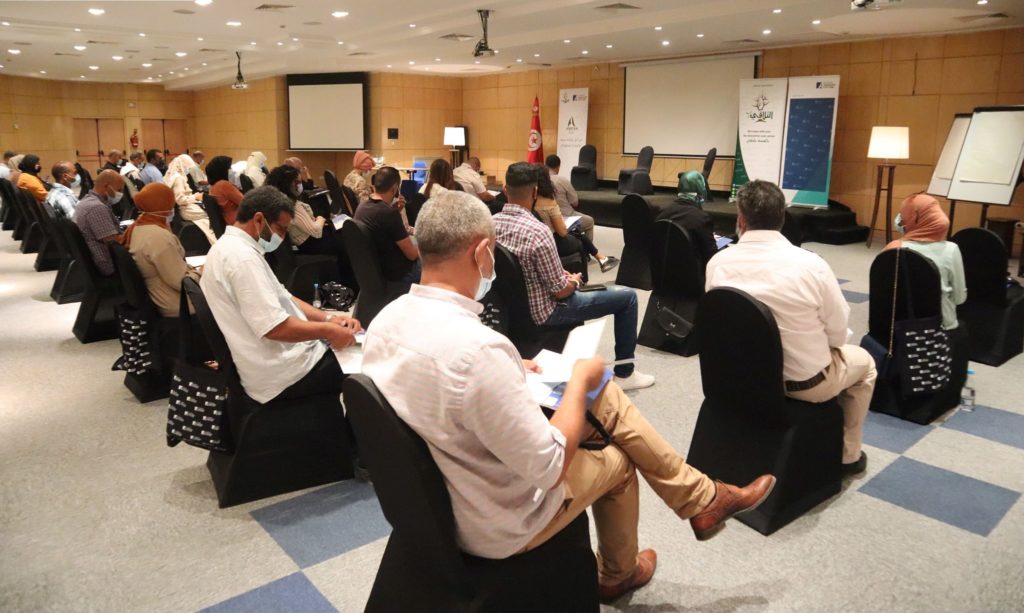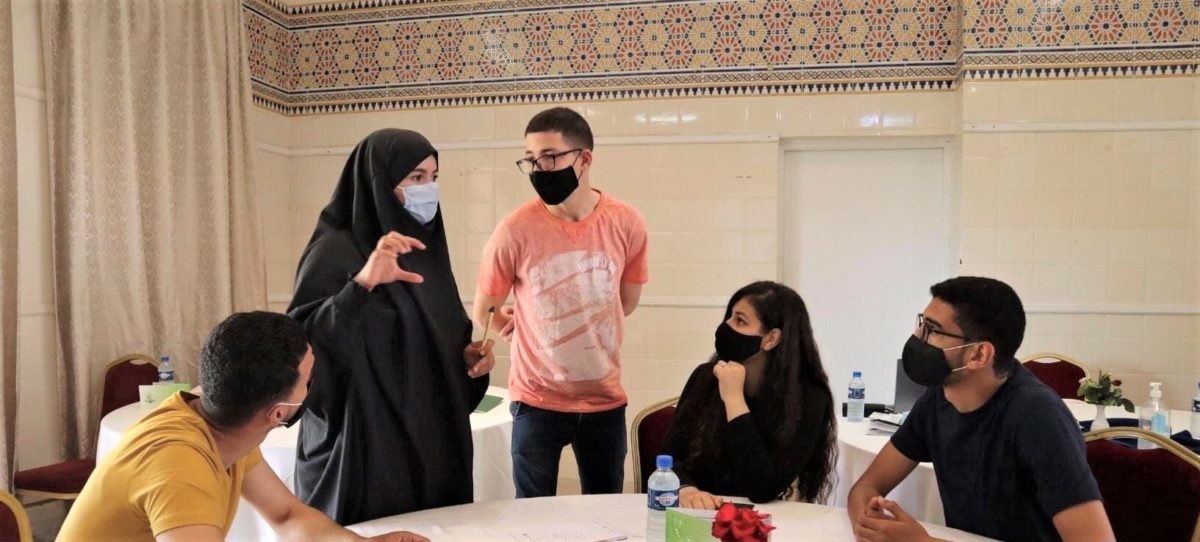This agreement comes from their belief, according to their press statement, that religious and sectarian diversity in human societies does not justify conflict and clash but calls for the establishment of a human bond that makes this diversity a bridge for dialogue, understanding, and cooperation to serve man and the nation.
For her part, the General Secretary of Attalaki Organization, Mrs. Basma Maria Baccari, she acknowledged that a number of religious minorities in Tunisia have been subjected to violations and great difficulties in their daily lives, even though the Tunisian citizens have the right, according to the constitution, international charters, and treaties, to establish their religious rites.
She emphasized that there are Tunisian citizens who resort to concealing their religious identity for fear of persecution and restrictions, which in itself is considered a danger to freedoms and to human beings in general. She added that there is rejection within the family and society, especially towards Christians from Muslim backgrounds, which has reached the point of exhuming graves, explaining, “All this comes in the absence of clear legislation protecting human dignity and rights from persecution and discrimination based on religion.”
Nadra Bannour, respnsible for the relations with civil society and religious minorities within the Ministry of Religious Affairs, stated that the charter is monitored by the ministry, as well as emphasizing that the ministry is open to such initiatives, highlighting the important role of CSOs in establishing the values of peaceful coexistence in the national context.
Years of Fear and Hate
In his turn, Daniel Cohen, Rabbi of the Jewish Synagogue in La Goulette, told Al-Ain News on the sidelines of the signing ceremony that the history of the Jews of Tunisia dates back to 2,400 years ago. “This covenant will contribute to ending years of fear, hatred, and a feeling of isolation within the Tunisian Jewish community,” he added.
Rabbi Cohen called on the Tunisian media to convey the voices of religious minorities and contribute to breaking the stereotypes that the majority of Tunisian society views towards religious minorities, especially Jews and Christians, explaining that the right to differ is guaranteed and that they can celebrate religious holidays and occasions and be congratulated on them, just like the majority religion.
He stressed that he aspires as a Jew to be able to go out or study without being worried about anyone and asking him about the “kippah” that he puts on his head so that he does not feel that he is a stranger to society despite its differences, as he remains a citizen like the rest of the citizens in Tunisian society. He stressed, “The Tunisian state must protect all citizens, and it has placed itself in a narrow framework, as the text of the Tunisian constitution affirms that it is a state whose religion is Islam, which means that it has removed the rest of the citizens from religious minorities from the framework of the state.”
For his part, Reverend Kamal Ouled Fatma, a representative of the Evangelical Church in Tunisia, said: “God is in his loving qualities, so it is not possible to coexist in isolation from others.” In statements to Al-Ain News, he confirmed, “We are Tunisian Christians, Tunisians, and we are not coming from Europe or America, and I did not come in my religious dress to prove that I am similar to all Tunisians.” He explained, “Christ taught us that we do not condemn so as not to be condemned, and we love even people who do not love us, so I was honored to participate and sign this agreement, which expresses unity within the framework of citizenship that embraces diversity.” Stressing that as Christians, they want to participate in building our homeland and live in peace with the rest of our people on an equal footing guaranteed by the constitution and international covenants.
Sister Ahlam Arfaoui, a representative of the Evangelical Church in Tunisia, thanked the Attalaki organization, which worked hard to gather the largest possible number of religious components at one table and for its strong defense of religious and Christian minorities in particular.
Mohamed ben Moussa, a member of the Baha’i Media Office in Tunisia, said that this charter seeks unity, diversity, and difference. He acknowledged that adherents of the Baha’i faith in Tunisia are subjected to violations, as fatwas of infidelity were issued against them by the Grand Mufti of Tunisia in December 2020, and the presidency of the Tunisian government accused them of apostasy. He affirmed that what the Baha’is are experiencing is experienced by their Christian, Jewish, and Shiite brothers in Tunisia from the forms of fear, material and moral violence, exclusion, depriving them of most of their citizenship rights, and marginalizing their role as citizens who are partners in building.
This charter aroused a great uproar among Tunisian society, which responded to it with a large campaign of insults and threats of violence, reaching the point of calling for murder. While the official authorities were satisfied with silence, despite the fact that the Ministry of Religious Affairs sent a representative to attend the signing. Basma Maria Bakari, General Secretary for Attalaki, said that the strong reaction was expected, but not of this magnitude and a large number of messages of threats and insults from the general public, radical Muslim sheikhs, intellectuals, and others, as all comments were unanimous that Tunisia is a Muslim country and will remain so. This is evidence of the extent of extremist ideology and hatred in the community and their lack of acceptance of those who are different from them.



